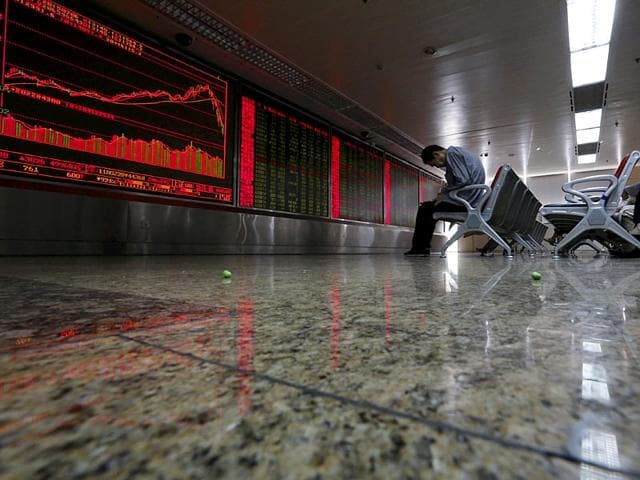What does stock market tumble mean for China and rest of world?
China's stock market tumbled this week despite a massive government intervention aimed at halting a slide in prices that began last month following an explosive rise. On Monday, the Shanghai Composite Index suffered its biggest daily fall since 2007. Here's what the sell-off means for the Chinese economy and other countries.
China's stock market tumbled this week despite a massive government intervention aimed at halting a slide in prices that began last month following an explosive rise. On Monday, the Shanghai Composite Index suffered its biggest daily fall since 2007. Here's what the sell-off means for the Chinese economy and other countries.

How concerned are ordinary Chinese citizens?
Gyrating stock prices are a popular topic of tea-break chatter, but only a minority of Chinese are directly affected. The market boom prompted millions of novice investors to pile into the market. But even with the new additions, a survey by Southwestern University of Finance found the share of households that participate in the market still stood at just 8.8% in the second quarter of this year. That is well below the one-third or more of households in the United States and other western markets that own stocks.
Who are the biggest winners and losers?
Winners included small companies in technology, automobile parts and other industries that caught investor attention with an early price surge and enjoyed more gains as more speculators piled in. Sugon Information Industry Ltd, a manufacturer of computer equipment, was the biggest gainer on the Shanghai exchange, with shares up 270% from November 01 through Tuesday. The second was Ue Furniture Co, a maker of high-tech office chairs, up 240%. State-owned construction companies rose after Beijing announced initiatives to expand trade links with neighboring Asian economies -- plans that are expected to lead to multibillion-dollar spending on infrastructure. Other winners include securities firms, which received a flood of money from trading fees and interest on loans to buy shares. Prices rose so much that losses for the biggest decliners were modest. Among the biggest losers was Xiamen Overseas Chinese Electronic Co, a maker of TV sets, off 27%.
Does it mean China's economy is collapsing?
China's stock market has little direct connection to its economy. Since trading began in 1990, the mainland's two exchanges in Shanghai and the southern city of Shenzhen have been used mostly to raise money for state companies. Regulators have eased access for private companies but the exchanges are still dominated by state industry. In this government-dominated system, investors react more to changes in regulation and the availability of credit to finance trading and less to economic fundamentals. That can mean share prices move in the opposite direction from economic performance. The explosive rise over the past year came as manufacturing and other economic indicators declined.
Does it affect the rest of the world?
China keeps its financial markets largely sealed off from global capital flows. But due to the size of its economy, traders abroad watch Chinese markets closely and react to dramatic changes. Beginning in 2002, Beijing allowed a handful of foreign fund managers to buy Chinese shares under rules that limit short-term trading. Foreign access increased with the November 17 launch of a programme that allows foreign investors to buy mainland shares through Hong Kong brokers. The Shanghai-Hong Kong Stock Connect limits foreigners to buying 568 mainly blue chip stocks on the Shanghai exchange, or about half the companies traded there. Those restrictions mean money cannot flow quickly into or out of the Chinese market. But lurches in Chinese share prices have triggered sell-offs in markets abroad.
Will Chinese economy suffer?
China got little "wealth effect" on the way up, and analysts say the impact on the way down also should be limited. Shareholders who sold before prices peaked made windfall profits. But the rise was too brief to goose consumer spending at a time when economic growth is slowing. One notable effect: The bulge in revenue for securities firms was so big that it helped to offset weakness in other industries and keep economic growth at an unexpectedly strong 7% for second quarter. Brokers have been ordered to tighten control over lending to finance trading, which is expected to limit the financial impact on the state-owned finance industry if traders are unable to repay them. "With only a small and relatively wealthy portion of Chinese households exposed to the stock market, we aren't particularly concerned," said Julian Evans -- Pritchard of Capital Economics in a report. "Given that the stock market didn't provide any noticeable boost to spending on the way up, there is no reason to expect it to be a drag on the way down."
Stay informed on Business News, TCS Q4 Results Live along with Gold Rates Today, India News and other related updates on Hindustan Times Website and APPs



